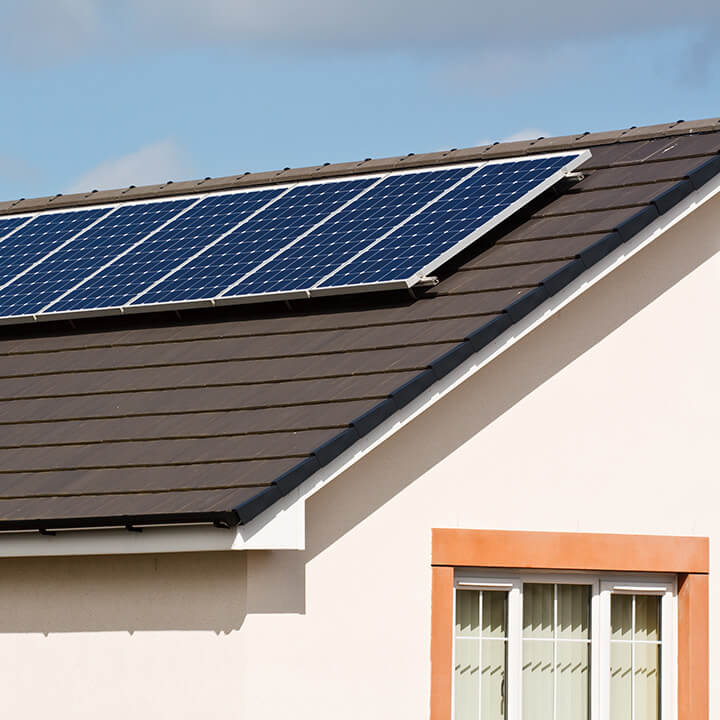Rooftop solar: A win/win for landlords and tenants?
18th August 2022
Is rooftop solar now a win-win for both landlords and tenants?
Rooftop solar isn’t a new technology. It’s been used for power generation and commercialised for many years now. Solar developers/operators may seek to agree a rooftop lease with a building owner in order to generate and sell power to the building occupier and any surplus to the electricity network operator. The building owner would benefit from a base rent and, perhaps, a percentage of the generating revenue received by the operator, without having to bear the capital expense of the generating equipment.

Various factors are challenging how building owners now view rooftop solar:
- Significantly increased energy prices – increased energy costs and price volatility are impacting both building owners and occupiers. Onsite generation can mitigate exposure to these challenges
- Sustainability and net zero – the focus on reduction of carbon footprint and greener operations means that onsite renewable generation must be considered. The capital cost of installing equipment has fallen and the lifecycle of the equipment has increased making the technology more accessible. As an evolved technology, rooftop solar could play a significant role in property companies’ ESG strategies
- REGOs – Renewable Energy Generation Origin certificates are available for renewable generation operations, which can also be commoditised. Whether for rooftop solar, or other renewable generation and storage technologies, or even for provision of biodiversity, property owners’ land and buildings can be used for certifiable sustainable purposes. These certificates can be commercially transacted to offset operations by operators which do not themselves own property assets.
Rooftop solar benefits for landlords and tenants
Within a landlord/tenant relationship, the landlord will generally have control over deployment of rooftop solar, or any other renewable generation or storage equipment on its property. While an occupier may have been granted a lease of the whole of a building or unit, landlord’s consent will usually be required for making any exterior alterations.
A landlord could allow an occupying tenant to install rooftop solar at its own cost, but this would likely result in the removal of it (or financial reimbursement arrangement) at the end of the tenant’s lease. A landlord may prefer, instead, to install the equipment. Whether prior to or during the continuance of a tenant’s occupation, a landlord would derive benefits such as:
- selling the generated power to its occupier under a power purchase agreement (PPA)
- taking the benefit of the REGOs certification, which itself could be sold under a commercial agreement
- having a more sustainable building, with improved energy credentials, which would likely be more desirable to potential occupiers.
In turn, an occupier would derive benefits from:
- purchasing power from its landlord with price certainty, at rates which are likely to be lower than purchasing from the electricity network (which costs would otherwise incorporate transmission and distribution network charges)
- occupying “greener” premises.
Power purchase agreements
The PPA will document the commercial terms between a generator and customer for the purchase of power, usually as a price per unit (in kilowatt hours (kWh) or megawatt hours (MWh)) supplied. Where a tenant purchases from its landlord, the landlord is the generator and the tenant is the customer.
Only the parties to the PPA are bound by it. Unlike lease terms, the PPA won’t ‘pass’ to a successor. Anticipating that the PPA is intended, by both parties, to continue for the duration of the term of the occupier’s tenancy, the lease terms will need to accommodate this. Increasingly, we expect landlords to include rooftop solar equipment at their property assets. Where landlords look to sell power to tenants, we expect the PPA to become a ‘standard’ letting document, alongside the lease.
How can we help with rooftop solar arrangements and PPAs?
Renewable energy specialists within Walker Morris’ Infrastructure & Energy Group can provide expert advice and guidance on PPA terms, REGOs certificate transactions, landlord and tenant arrangements and, more broadly, utilisation of renewable energy generation and storage technology. The generation and supply of electricity is a licensable activity and the team can also advise on licensing requirements. For further advice or information, please contact Paul Dinning or any member of the Infrastructure & Energy Group.





